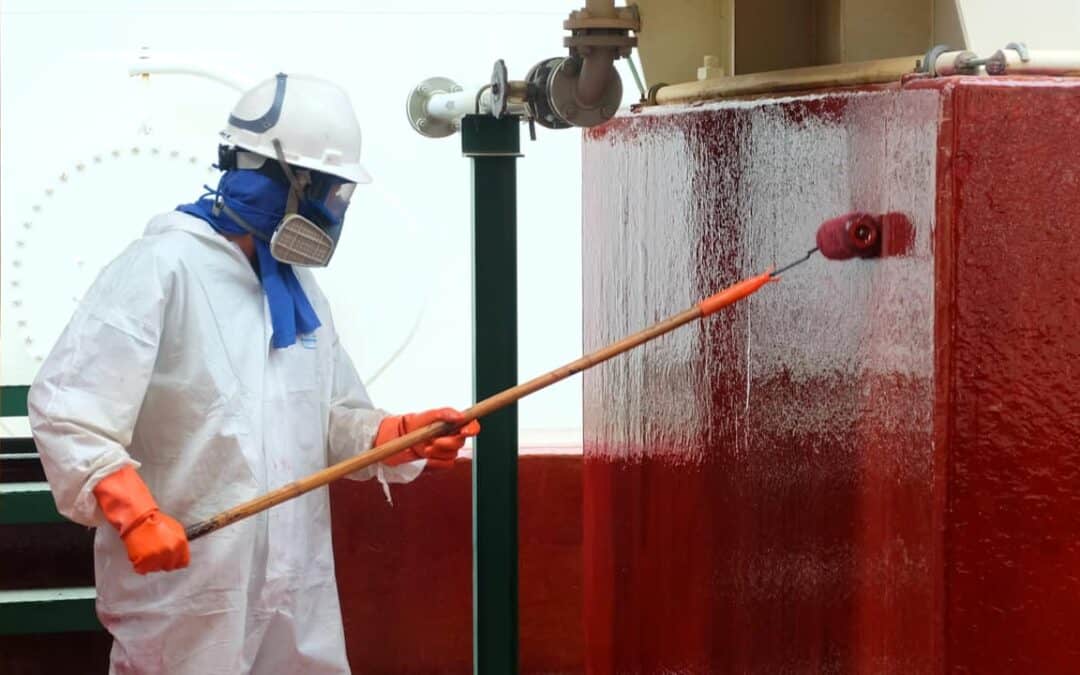Corrosion is important to understand in any industry. Corrosion is the gradual destruction of reactive materials by natural interactions with the environment. Industrial materials, therefore, require proper maintenance, particularly against said natural elements. It’s important to maintain your industry materials and equipment through different methods, like protective coatings, for example. This blog will explore just how protective coatings stop corrosion so that your industrial equipment and materials can be long-lasting, durable, and effective for years to come.
What is Corrosion?
As said, corrosion is a type of chemical reaction between a reactive material and the natural environment. Common forms of erosion include rusting – which happens when metal oxidizes. Oxidization happens when a surface material and oxygen molecules come into contact. The surface material would either be made from iron or an alloy containing iron. The end result of oxidization, or rust, is a much weaker material, which in turn makes it susceptible to further damages or even breaking.
There are a number of ways to naturally help materials and equipment defend themselves against corrosion, like reducing humidity in work conditions, for example.
How Do Protective Coatings Stop Corrosion
To put it simply, protective coatings rely on advanced chemistry to protect the surfaces they’re placed on. One of the most common practices is to prevent corrosion through the application of a sacrificial coating. This means that a more reactive metal is placed on top of the base surface to protect the actual equipment from rust.
For example, for iron, or alloys containing iron, you’d protect it from rusting by coating it with zinc. This process is called galvanization. This creates a much stronger alloy that will be able to operate far longer than without protection.
What Are the Types of Industrial Coatings and How Do They Work?
A zinc coating is not the only type of protective method that can be used to protect equipment and industrial materials. Depending on the type of equipment and protection needed, there are a number of different types of coatings that can be used. These include:
- PTFE Coating (polytetrafluoroethylene) – This type of coating not only prevents corrosion but also increases the mechanical strength of the material it’s applied to. It’s the main type of coating used in a huge variety of industries. This is because it doesn’t only provide protection against corrosion, but also against UV rays, chemical, and nuclear radiation.
- Thermal Coating – This is typically needed in work environments where there is a huge variety in extreme temperatures. Metal can be damaged by the constant expansion and contraction that occurs in temperature change. A thermal coating protects metal against this damage.
- Fluoropolymer Coating – This coating contains high-performance resins and lubricants that protect against huge temperature changes, corrosion, and chemical spills.
- Powder Coating – It works by improving adhesion and strengthening against corrosion.
- Phenolic Coating – This enhances the surfaces against corrosion. It’s applied in high-intensity applications, such as immersion in acids and solvents. This works best in high temperatures and low pH environments.
- Phosphate Coating – This works as a conversion coating by modifying the surface it’s applied to.
How Your Work Environment Will Impact Your Coating Choice
Your business or company should select a coating based on a number of factors. It should be mentioned that while the above list does cover a broad spectrum of coatings available, there are many more not listed here. Coatings should be chosen based on a number of factors, like:
- The type of material needing protection
- Any potential hazards in the work environment
- Performance-enhancing qualities
- The type of equipment needing protection
How to coat materials is a complex topic in any industry. There are a number of different environmental factors to consider, like oxidization or thermal activity, for example, that can impact how your equipment and materials will perform. This blog will have highlighted the different ways that protective coatings stop corrosion, but it’s important to ensure that your current tools are surfaced properly.
The materials and equipment you work with should be properly coated in order to serve your business well. That’s why you should work with a protective solutions company that will work with you to provide the best coatings for your equipment and business. At Atlas Wear Solutions, we have been servicing Australia wide for over 20 years. We specialise in providing industrial rubber and ceramic linings as well as wear and corrosion protective coatings. We are a locally owned and operated company with over 20 years of experience, with extensive knowledge in the application of wear-resistant products. Get in touch with one of our friendly team today to see how we can help your business.

